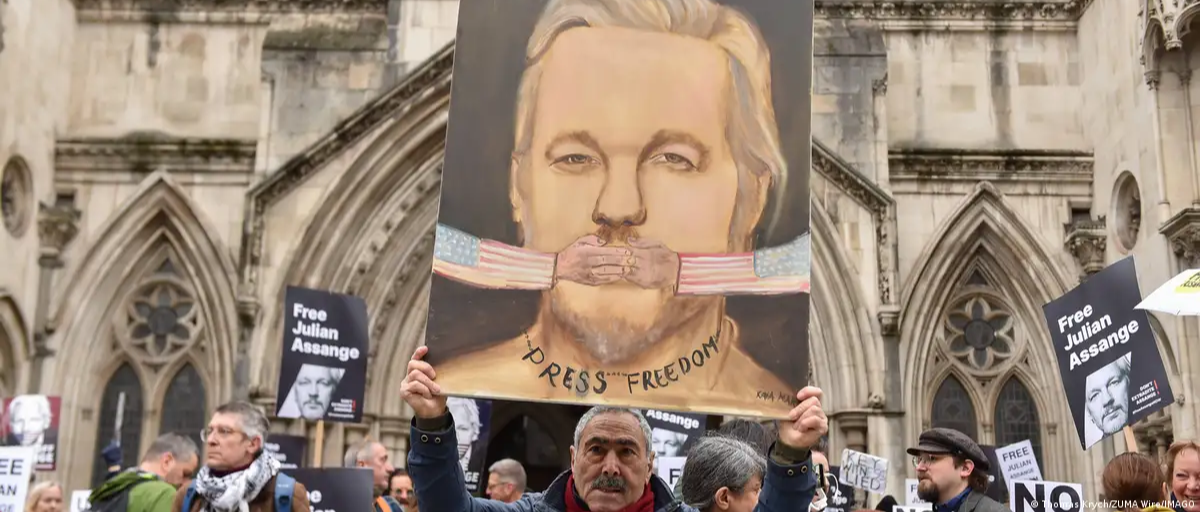
Protesters rally outside the Royal Courts of Justice for the release of the Wikileaks founder Julian Assange
Berlin, March 4 (RHC)-- German Chancellor Olaf Scholz on Monday said he hoped the British court system would protect Julian Assange, founder of the whistleblowing website WikiLeaks, from being extradited to the United States.
U.S. prosecutors want to place the 52-year-old Assange on trial over WikiLeaks' high-profile release of confidential military records and diplomatic cables.
"I am of the opinion that it would be good if the British courts granted him the necessary protection because he has to expect prosecution in the USA, given the fact that he has betrayed American state secrets," Scholz said.
Scholz said he believed the chances of Assange avoiding extradition had increased "because United States representatives could not reassure British judges that the possible punishment would be within a framework that is acceptable from Great Britain's point of view."
The chancellor made his remarks during an question-and-answer session at a vocational school in southern Germany.
U.S. lawyers say Assange — indicted on 17 charges of espionage and one charge of computer misuse — could face up to 175 years in prison if convicted, but authorities have said the sentence is likely to be much shorter.
Supporters of Assange, who is Australian, say he is a journalist who lifted the lid on US military wrongdoing in Iraq and Afghanistan. They claim the prosecution is politically motivated and that he has no chance of a fair trial in the US.
Lawyer Clair Dobbin, representing the U.S. government, last month said Assange had damaged US security and intelligence services and that he had "created a grave and imminent risk" that could harm and lead to the arbitrary detention of innocent people, many living in war zones or under repressive regimes.
Dobbin said that, in encouraging US Army intelligence analyst Chelsea Manning and others to hack into government computers and steal from them, Assange was "going a very considerable way beyond" gathering information as a journalist. Dobbin was speaking as the UK High Court heard two days of arguments over whether to grant Assange a fresh appeal against his extradition. A decision is expected soon, possibly this month.
Should the judges rule against Assange, he could ask the European Court of Human Rights to halt the extradition. However, supporters worry he could be put on a plane to the US before that happens, with the government having already signed an extradition order.

